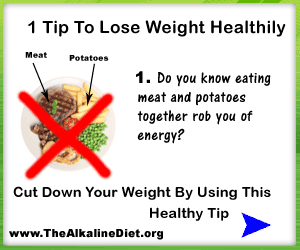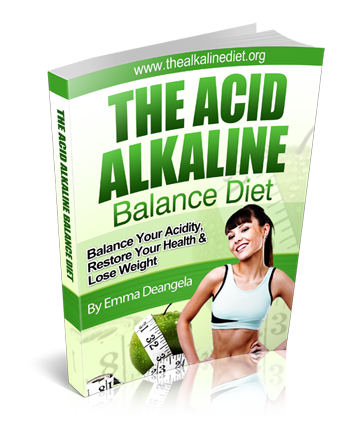Mainstream Nutrition Myths
June 06, 2017
Foodviki
Tweet
Follow
Tweet


Foodviki
TweetFollowTweet




Mainstream nutrition is
full of nonsense. Despite clear advancements in nutrition science, the old
myths don’t seem to be going anywhere. Here are mainstream nutrition myths that
have been debunked by scientific research.
Losing Weight
is All about Willpower and Eating Less, Exercising More
Weight loss (and gain)
is often assumed to be all about willpower and “calories in vs calories out.
“But this is completely inaccurate.
The human body is a
highly complex biological system with many hormones and brain centers that
regulate when, what and how much we eat.
It is well known that
genetics, hormones and various external factors have a huge impact on body
weight.
Junk food can also be
downright addictive, making people quite literally lose control over their
consumption.
Although it is still
the individual’s responsibility to do something about their weight problem,
blaming obesity on some sort of moral failure is unhelpful and inaccurate.
Bottom Line: It is a
myth that weight gain is caused by some sort of moral failure. Genetics,
hormones and all sorts of external factors have a huge effect.
Egg Yolks
Should be Avoided Because They Are High in Cholesterol, Which Drives Heart
Disease
Cholesterol in the diet
has remarkably little effect on cholesterol in the blood, at least for the
majority of people .Studies have shown that eggs raise
the “good” cholesterol and don’t raise risk of heart disease.
One review of 17 studies with a total of 263,938
participants showed that eating eggs had no effect on the risk of heart disease
or stroke in non-diabetic individuals.However… keep in
mind that some studies have found an increased heart attack risk in diabetics
who eat eggs.
Whole eggs really are
among the most nutritious foods on the planet and almost all the nutrients are
found in the yolks. Telling people to throw the yolks away may just be the most
ridiculous advice in the history of nutrition.
Bottom Line: Despite
eggs being high in cholesterol, they do not raise blood cholesterol or increase
heart disease risk for the majority of people.
It is best to
Eat Many, Small Meals throughout the Day to “Stoke the Metabolic Flame”
It is often claimed
that people should eat many, small meals throughout the day to keep the
metabolism high.
But the studies clearly
disagree with this. Eating 2-3 meals per day has the exact same effect on total
calories burned as eating 5-6 (or more) smaller meals.
Eating frequently may
have benefits for some people (like preventing excessive hunger), but it is
incorrect that this affects the amount of calories we burn.
There are even studies
showing that eating too often can be harmful,a new study came out recently
showing that more frequent meals dramatically increased liver and abdominal fat
on a high calorie diet.
Bottom Line: It is not
true that eating many, smaller meals leads to an increase in the amount of
calories burned throughout the day. Frequent meals may even increase the
accumulation of unhealthy belly and liver fat.
Coffee is
Unhealthy and should be avoided
Coffee has long been
considered unhealthy, mainly because of the caffeine. However, most of the
studies actually show that coffee has powerful health benefits.
This may be due to the
fact that coffee is the biggest source of antioxidants in the Western diet,
outranking both fruits and vegetables.
Coffee drinkers have a
much lower risk of depression, type 2 diabetes, Alzheimer’s, Parkinson’s, and
some studies even show that they live longer than people who don’t drink coffee
.
Bottom Line: Despite
being perceived as unhealthy, coffee is actually loaded with antioxidants.
Numerous studies show that coffee drinkers live longer and have a lower risk of
many serious diseases.
Saturated
Fats and Trans Fats are Similar… They’re The “Bad” Fats That we Need to Avoid
The mainstream health
organizations often lump saturated and artificial Trans fats in the same category,
calling them the “bad” fats.
It is true that Trans
fats are harmful. They are linked to insulin resistance and metabolic problems,
drastically raising the risk of heart disease.
However, saturated fat
is harmless, so it makes absolutely no sense to group the two together.
Interestingly, these
same organizations also advise us to eat vegetable oils like soybean and canola
oils.
But these oils are
actually loaded with unhealthy fats… one study found that 0.56-4.2% of the
fatty acids in them are toxic trans fats .
Bottom Line: Many
mainstream health organizations lump trans fats and saturated fats together,
which makes no sense. Trans fats are harmful, saturated fats are not.
Salt should
be restricted in Order to Lower Blood Pressure and Reduce Heart Attacks and
Strokes
The salt myth is still
alive and kicking, even though there has never been any good scientific support
for it.
Although lowering salt
can reduce blood pressure by 1-5 mm/Hg on average, it doesn’t have any effect
on heart attacks, strokes or death.
Of course, if you have
a medical condition like salt-sensitive hypertension then you may be an
exception.
But the public health
advice that everyone should lower their salt intake (and have to eat boring,
tasteless food) is not based on evidence.
Bottom Line: Despite
modestly lowering blood pressure, reducing salt/sodium does not reduce the risk
of heart attacks, strokes or death.
Eating Fat
Makes You Fat. So if You Want to Lose Weight, You Need to Eat Less Fat
Fat is the stuff that
is under our skin, making us look soft and puffy.Therefore it seems logical
that eating fat would give us even more of it.
However, this depends
entirely on the context. Diets that are high in fat AND carbs can make you fat,
but it’s not because of the fat.
In fact, diets that are
high in fat (but low in carbs) consistently lead to more weight loss than
low-fat diets… even when the low-fat groups restrict calories.
Bottom Line: The
fattening effects of dietary fat depend entirely on the context. A diet that is
high in fat but low in carbs leads to more weight loss than a low-fat diet.
Red Meat
Consumption Raises The Risk of All Sorts of Diseases, Including Heart Disease,
Type 2 Diabetes and Cancer.
We are constantly
warned about the “dangers” of eating red meat.
It is true that some
studies have shown negative effects, but they were usually lumping processed
and unprocessed meat together.
The largest studies
(one with over 1 million people, the other with over 400 thousand) show that
unprocessed red meat is not linked to increased heart disease or type 2
diabetes.
Two review studies have
also shown that the link to cancer is not as strong as some people would have
you believe. The association is weak in men and nonexistent in women.
So… don’t be afraid of
eating meat. Just make sure to eat unprocessed meat and don’t overcook it,
because eating too much burnt meat may be harmful.
Bottom Line: It is a
myth that eating unprocessed red meat raises the risk of heart disease and
diabetes. The cancer link is also exaggerated; the largest studies find only a
weak effect in men and no effect in women.





























0 comments